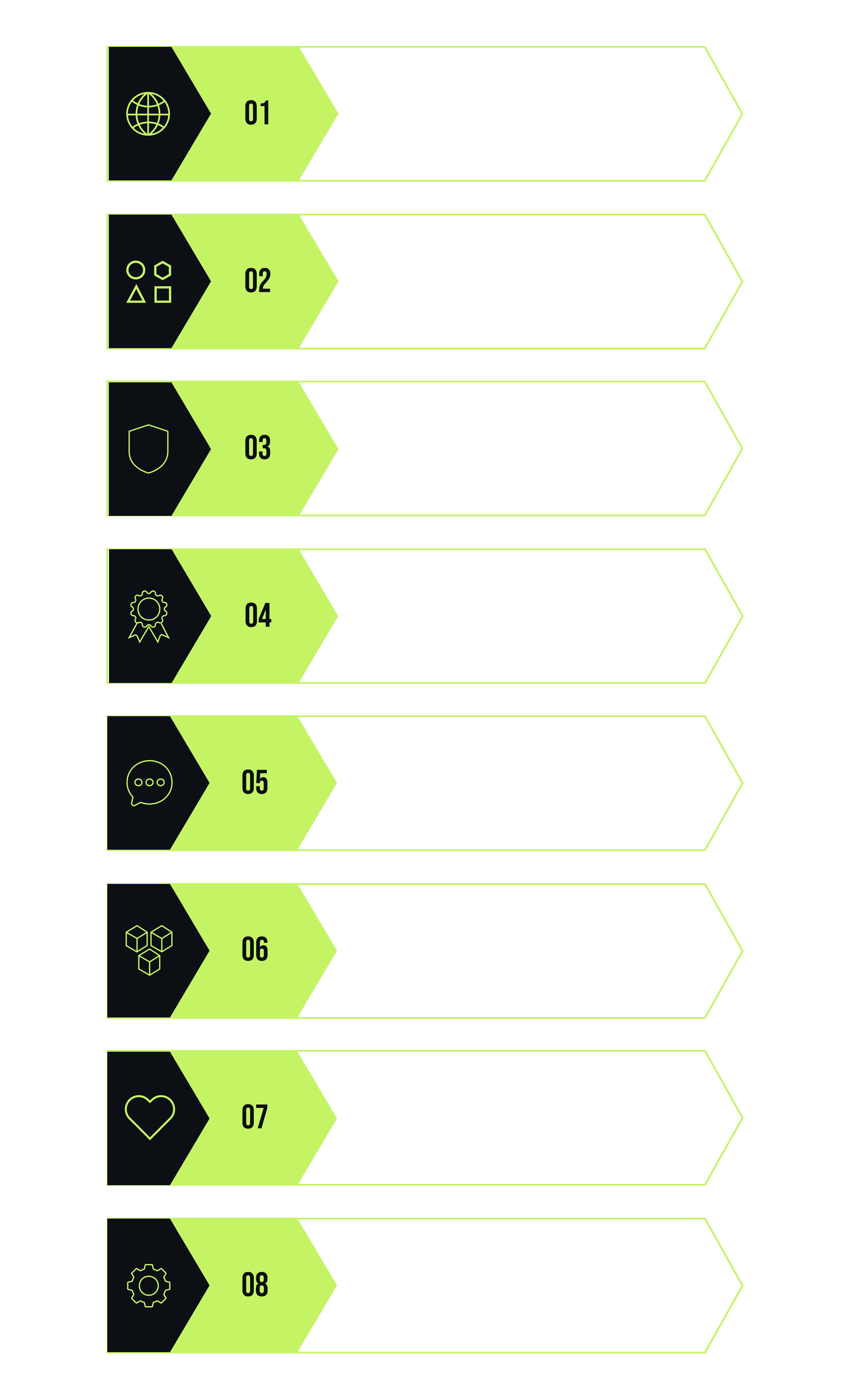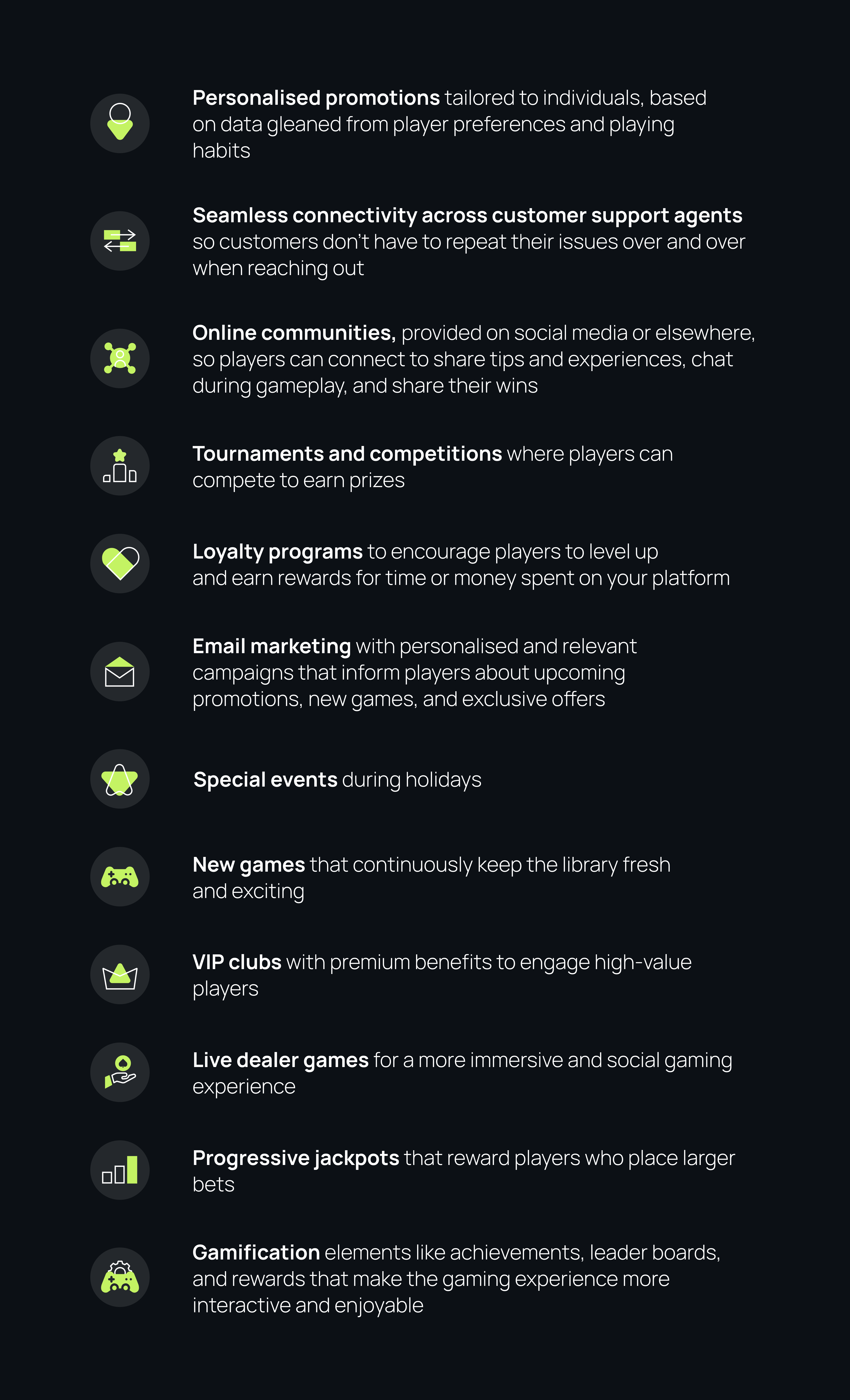Customer experience (CX) has become the holy grail of iGaming marketing. Every company has a digital customer experience strategy to manage it. But do all companies clearly understand what CX is?
Customer experience is often confused with customer engagement, another marketing staple. It’s important to know the difference and to keep track of both. We prepared this brief guide to answer the most common questions about customer experience and engagement.
The difference between customer experience and customer engagement
Customer experience is the totality of all customer interactions with a brand. This includes seeing an ad, opening a website, placing a bet, withdrawing their winnings, and contacting support — all these interactions are part of the customer experience.
If we think of each interaction as a brick, then together, they form the house of customer experience. If most bricks are good and sturdy, the house feels comfortable, and the inhabitant is happy. But when there are too many bad bricks, the building can collapse or be abandoned. According to Zendesk’s CX report, 73% of customers would switch to a rival brand after two or more bad experiences. Unsurprisingly, brands invest large sums of money and much effort to ensure a smooth and pleasant customer experience.
In contrast, all the steps a brand takes to make each customer interaction a positive one are known as customer engagement. In the house metaphor, customer engagement would be the mortar that keeps the bricks together. Engaged customers are loyal; they’re willing to forgive an occasional slip if they love your brand. Highly engaged customers also spend more money with your brand.
Simply put, customer experience is about what your customers actually feel, and customer engagement is about what you do to make them happy. A good customer experience and high customer engagement are essential for a business to thrive.
Building and measuring customer experience
Technically, customer experience isn’t “buildable” in the same way that customer engagement is. Customer experience is affected not only by what you do but also by player expectations and perceptions. Different people will respond differently to the same set of customer engagement strategies. However, the iGaming industry has best practices that you can follow for more effective customer experience management.
Strategies to create a positive customer experience
An exemplary online casino experience includes the following elements:

Customer experience metrics
How do you know if your players have a good experience? You can use several methods to measure their satisfaction:
- Customer surveys: Ask customers directly about how they like your platform and whether they’d recommend it to friends
- Data analysis: Look at website usage, customer lifetime value, player retention rate, churn rate, and customer support data like ticket reopen rate and time-to-resolution
- A/B tests: Run several versions of a feature or promotion side by side to see which one players like better
- Staff surveys and interviews: Ask employees who interact with players (e.g., customer support staff) about any patterns they notice and notable comments from players

Among these methods, surveys are the easiest but also the least reliable method. A good response rate for customer surveys is typically between just 5% and 30%. Besides, not all customers put their money where their mouth is. To see the real picture, you need data about how customers behave on your platform. However, collecting and processing such data can be complex and laborious.
Building and measuring customer engagement
To engage your customers, you can use a variety of methods. And you have to measure the impact in real time to know which works best.
Customer engagement strategies
To increase customer engagement with gambling platforms, use a mix of generic and industry-specific tactics, such as:

Customer engagement metrics
To measure the success of your customer engagement efforts, we recommend using these metrics:
- Active player rate: The percentage of registered players who have been active on the platform within a specific time frame (e.g., daily, weekly, or monthly)
- Session duration: The average amount of time players spend on the platform during each visit
- Game playtime: The average duration players spend on individual games
- Frequency of visits: How often players return to the casino over a given period
- Bet frequency: The rate at which players place bets
- Deposits and withdrawals: The frequency and amounts of player deposits and withdrawals
- Social media engagement: The quantity of likes, comments, shares, and follows on social media posts
- Referral rate: The percentage of players referring others to the casino
- Retention rate: The percentage of players who continue to engage with the platform over an extended period
- Lifetime value: The total amount of money spent by a player since their registration
Don’t forget that customer engagement is just one aspect of customer experience. By monitoring customer experience alongside engagement, you can see a broader picture and identify areas for improvement.
What is adaptive learning, and why is it important?
Building a positive customer experience and increasing customer engagement has become more challenging as customers interact with companies through a multitude of digital channels. They no longer have a casino dealer or customer support agent as their only touch point; there are also review sites, social media, email campaigns, and chatbots.
Adaptive learning has become a key tool to handle this complexity. It is a type of machine learning that collects data and analyses it simultaneously, outperforming traditional machine learning that relies on manual training and historical information.
In the gambling industry, artificial intelligence (AI) with adaptive learning is used to deliver unique, tailored customer experiences rather than using a one-size-fits-all approach. Adaptive AI can process customer feedback and craft personalised responses much better and faster than humans ever could. In addition, it can learn from incoming data in real time and adjust its actions based on the changing player preferences. Automating customer experience with AI can give you a strong edge over the competition.
VeliEDGE: Your adaptive tool for customer engagement
Our VeliEDGE solution uses adaptive learning tools to boost customer engagement in the iGaming industry. In particular, VeliEDGE can:
- Collect and analyse customer behaviour data
- Segment players based on their demographic data, behaviour, and preferences
- Engage customers effortlessly across multiple channels as it can access all information shared in past conversations, regardless of channel
- Create and deliver personalised messages, recommendations, and rewards to players

Sanjulian Nis
Head of VeliEDGE
In the ever-evolving gambling industry, mastering customer engagement is crucial. Personalised promotions, responsive support, vibrant communities, exciting tournaments, loyalty programs, email marketing, special events, innovative games, VIP clubs, progressive jackpots, and gamification elements are key to captivating players. With real-time measurement and optimisation, you can cultivate long-lasting loyalty. That’s where VeliEDGE comes in. It offers interactive and immersive features, empowering gambling platforms to excel in customer engagement.
The “EDGE” in VeliEDGE stands for Engaging Digital Gaming Experience. We developed the software to provide interactive and immersive experiences for your customers.
VeliEDGE delivers automated, fully personalised experiences across your players’ preferred channels and devices. It gives you a technological edge, driving player retention and increasing lifetime value.
Please contact our sales department to try out our new customer engagement software and get a peek into the future of iGaming marketing.



